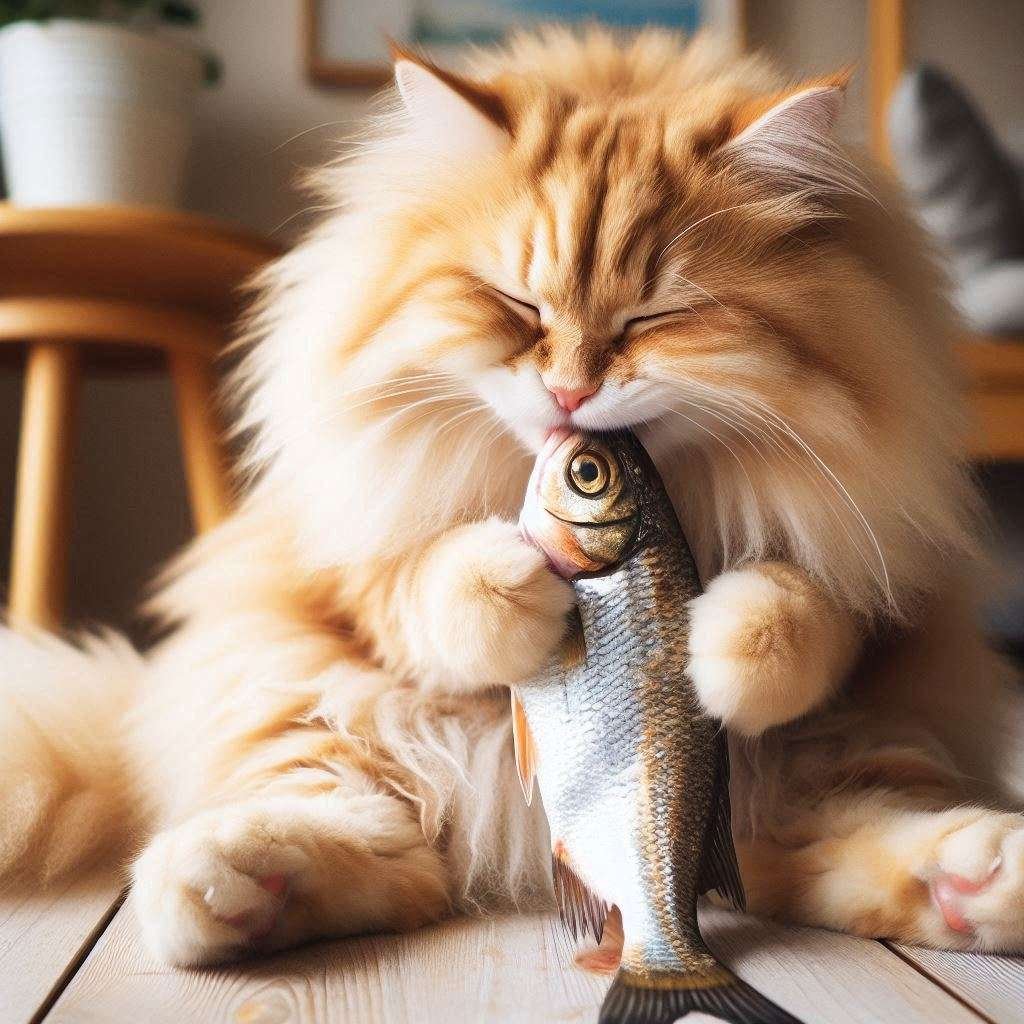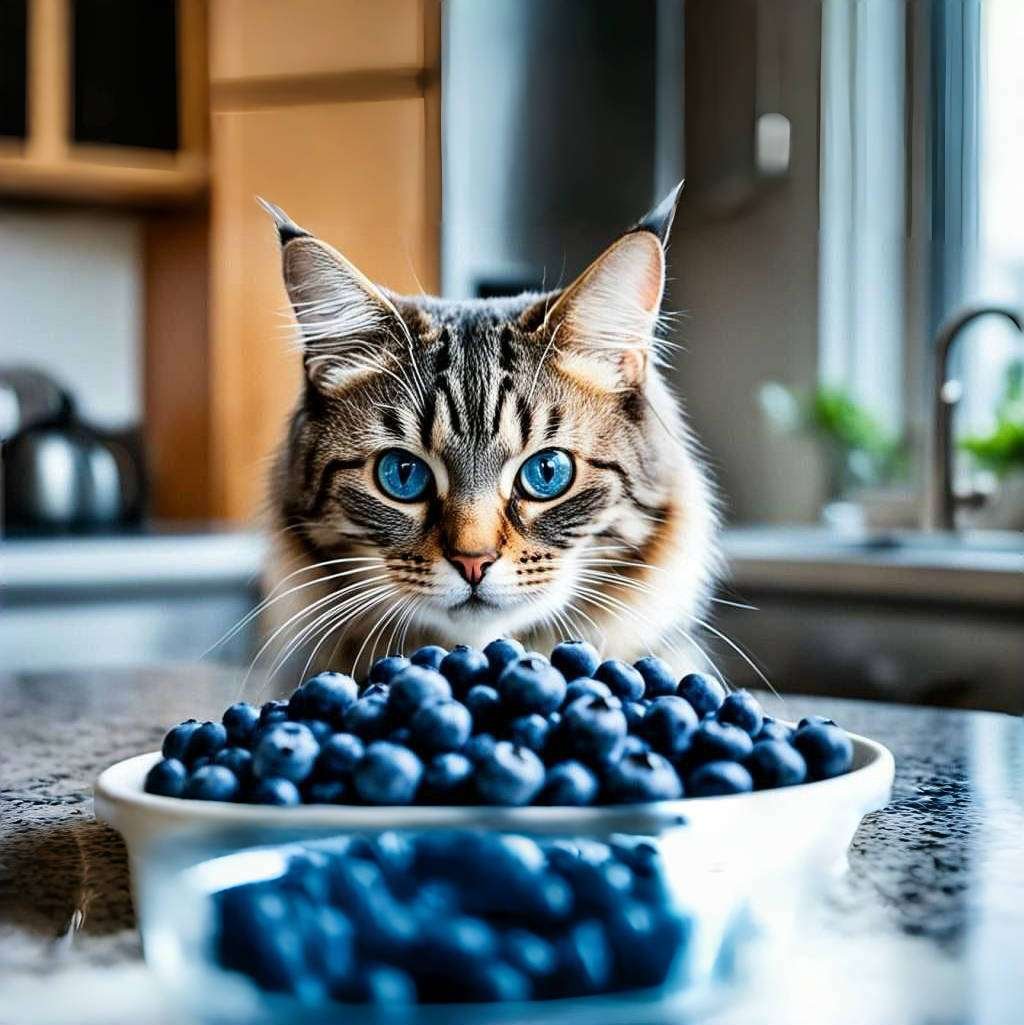Can I feed my cat cooked chicken? Feeding your cat a balanced diet is key for their health and happiness. Cats need specific nutrients found mainly in animal proteins. Cooked chicken is a lean protein that cats love.
This guide will cover the benefits and risks of giving cooked chicken to your cat. We’ll also talk about other human foods that are good for cats. By knowing what your cat needs and how to add new foods, you can make sure they get a varied and healthy diet.
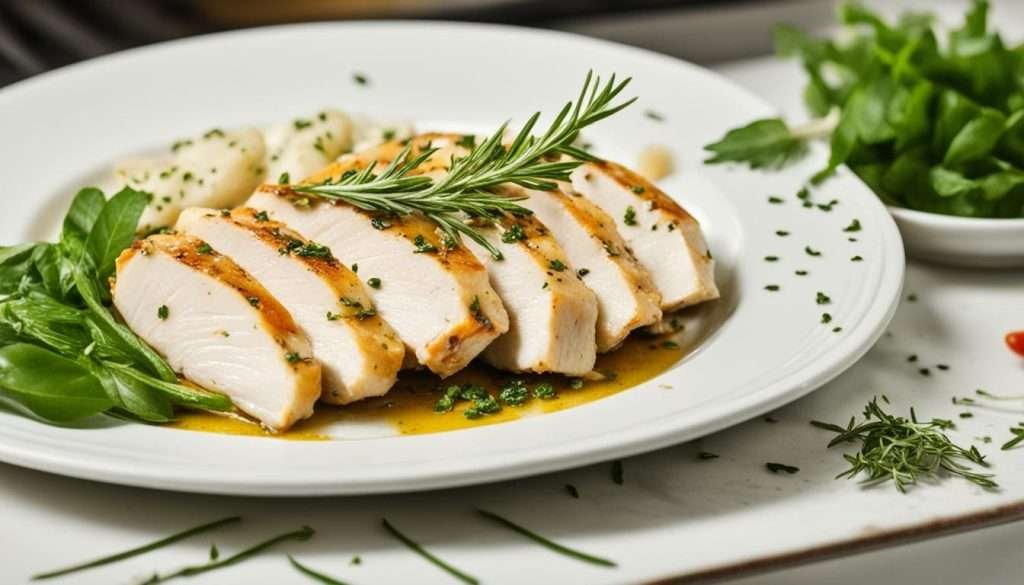
Key Takeaways
- Cooked, lean meats like chicken are generally safe for cats to consume in moderation.
- Cats require a balanced diet rich in animal-based proteins to meet their unique nutritional needs.
- Introducing new foods, including cooked chicken, should be done gradually to avoid digestive issues.
- Certain human foods, such as dairy, chocolate, and onions, can be toxic to cats and should be avoided.
- Consulting with your veterinarian is recommended when transitioning your cat to a new diet or incorporating human foods.
The Importance of Balanced Nutrition for Felines
Proper nutrition is key for the health and happiness of our cats. Cats need a special diet that’s different from what humans eat. They need the right mix of proteins, fats, carbohydrates, vitamins, and minerals to stay healthy.
Understanding Your Cat’s Dietary Needs
Cats are obligate carnivores, which means they need a lot of protein to live well. Protein helps build and repair tissues, keeps muscles strong, and gives them energy. Cat foods are made to meet AAFCO standards for complete and balanced nutrition, so your cat gets all the nutrients it needs.
Dry, semi-moist, and canned cat foods have their own advantages and disadvantages. Knowing the pros and cons of each type can help you choose the best for your cat.
The Role of Protein in a Cat’s Diet
- Cats need a diet that’s high in animal-based proteins to stay healthy.
- Protein is key for strong muscles, organs, and immune function in cats.
- The quality and quantity of protein in their food greatly affects their health.
- Cats might get picky about food, so offering a variety of protein sources helps them get all the amino acids they need.
Knowing how balanced nutrition and protein are important for cats helps pet owners make good choices. This supports their cats’ health and happiness over time.
Cooked Chicken as a Safe Option for Cats
Cooked, boneless, and skinless chicken is safe and nutritious for cats when given in small amounts. It’s a common food in many homes and great for cats because it’s high in animal protein. Chicken also has minerals and vitamins that are good for your cat’s health.
Preparing Chicken for Your Cat
Make sure the chicken is cooked well and has no bones, skin, or seasonings before giving it to your cat. Raw chicken can have harmful bacteria like salmonella and E. coli, which can make cats sick. It’s better to give your cat boiled or steamed chicken instead of seasoned or fried chicken, which can upset their stomach.
Portion Control and Moderation
It’s important to control how much chicken you give your cat to avoid weight gain and health problems. Just a little bit of chicken as a treat is enough. Mixing different foods, including chicken, helps keep your cat healthy. Cat food is made to give them all the nutrients they need, like taurine for their health.
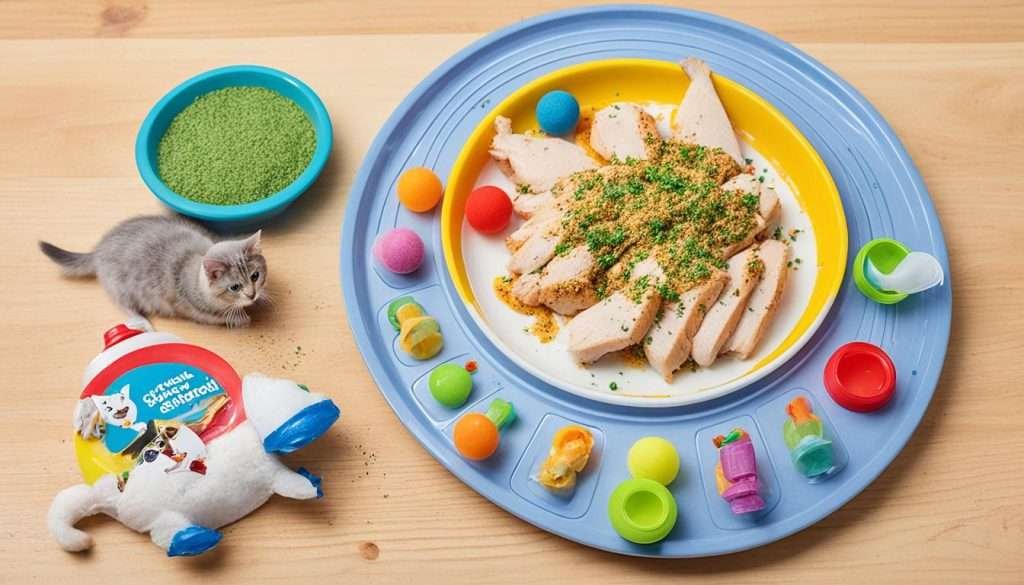
Adding cooked chicken as a treat or topping for your cat’s food can give them more protein. Protein from chicken helps with muscle growth and repair. Taurine in chicken is important for their vision, digestion, and heart health.
“Chicken is a staple food in most households and a suitable option for cats due to its high animal protein content and natural minerals and vitamins.”
can i feed my cat cooked chicken and Other Human Foods
Cooked chicken is safe and nutritious for cats. But, we must be careful with other human foods. Cats have special dietary needs. The right foods can help their health, while others can be harmful.
Fruits and Vegetables for Feline Indulgence
Cats can enjoy some fruits and vegetables as treats. Here are some safe options:
- Bananas: They give cats potassium and fiber but be careful with the sugar.
- Blueberries: These are full of antioxidants and make a great snack.
- Broccoli: When cooked and given in small amounts, it’s good for fiber and vitamins.
- Carrots: They are crunchy and packed with beta-carotene, perfect for cats.
- Spinach: This green is full of nutrients and safe for cats.
Always introduce new foods slowly and watch how your cat reacts. Some cats may not like them.
Human Foods to Avoid Feeding Your Cat
Some human foods are safe for cats, but many are not. Here are the ones to avoid:
- Chocolate: It has theobromine, which is toxic and can be deadly.
- Onions and Garlic: They can harm red blood cells and cause anemia.
- Grapes and Raisins: These can lead to kidney failure.
- Alcohol and Caffeine: Very toxic and can hurt a cat’s nervous system.
- Raw Dough: The yeast can expand in a cat’s stomach, causing blockages.
Keep these and other dangerous foods away from your cat. It’s for their safety and health.
Sharing our snacks with cats can be tempting. But, we must think about their diet and health first. Always talk to your vet about what human foods are safe for your cat.
Incorporating Cooked Chicken into Your Cat’s Diet
Adding cooked chicken or other human foods to your cat’s diet should be done slowly and in small amounts. Cats need a balanced diet for good health. Cooked chicken can be a nice addition but shouldn’t replace their main food.
Start by adding a little cooked chicken to their regular food. This helps your cat get used to the new taste and texture. Make sure they like it by watching for any signs of upset, like vomiting or diarrhea.
Make sure the chicken is plain, without bones or seasonings that could harm your cat. Never give raw chicken because it might have harmful bacteria like Salmonella. Choose baked, boiled, or grilled chicken, and let it cool before serving to avoid burns.
It’s important to watch how much chicken you give your cat. Talk to your vet to find out the right amount for your cat’s size and health. Cooked chicken should be only 10-15% of their daily food.
While cooked chicken can be a nice treat, it shouldn’t be the main part of your cat’s diet. Their main food should be high-quality, age-right commercial cat food. Adding human foods should be done carefully to keep their diet balanced.
| Nutrient | Benefits for Cats |
|---|---|
| Lean Protein (Chicken) | Supports growth, development, and immune system |
| Taurine | Crucial for heart health, vision, and reproductive functions |
| B Vitamins | Aid in digestion, healthy skin, fur, and muscle development |
| Zinc | Supports immune system function, wound healing, and healthy skin and coat |
| Essential Fatty Acids | Contribute to a shiny coat, healthy skin, reduced inflammation, and cognitive functions |
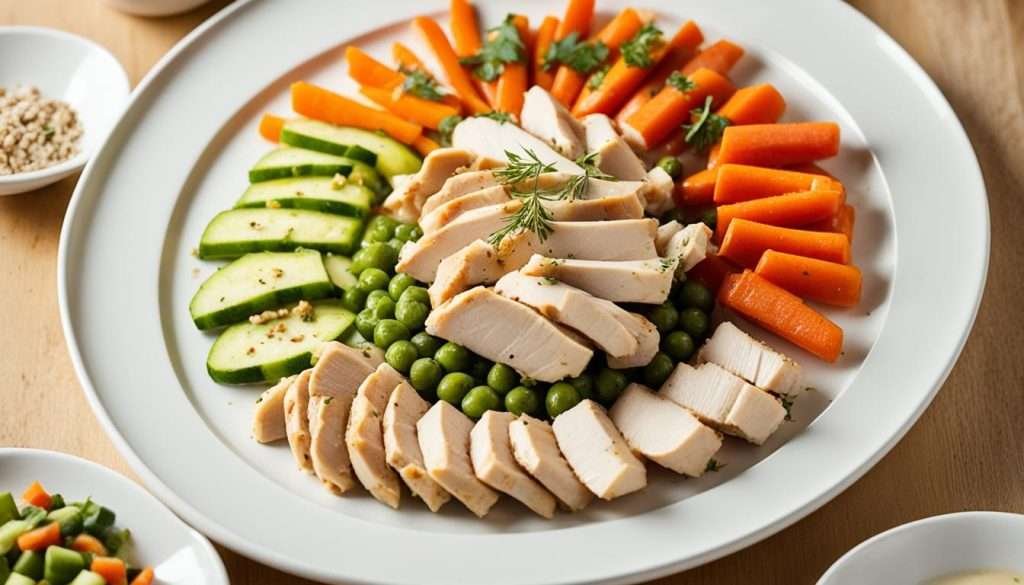
By adding cooked chicken and other foods slowly, while keeping their main food balanced, you can give your cat a varied and healthy diet. This supports their health and happiness.
Conclusion
Cooked chicken can be a safe and healthy treat for cats when given in small amounts. It’s important to know what your cat needs, prepare the chicken right, and add it to their meals. But, remember to watch how much you give and avoid giving them foods that are bad for them.
The summary of feeding cats cooked chicken is that it’s good for them as a protein source. But, it shouldn’t take the place of their main diet of good quality cat food. Important takeaways for pet owners include talking to a vet before adding new foods, removing bones and skin, and skipping seasoned chicken that could hurt cats.
For safe human food options for cats, cooked lean meats like chicken, turkey, and beef are okay as treats. But, they should be plain and unseasoned. The importance of balanced feline nutrition is huge. Cats need a diet full of animal protein to stay healthy and happy.

